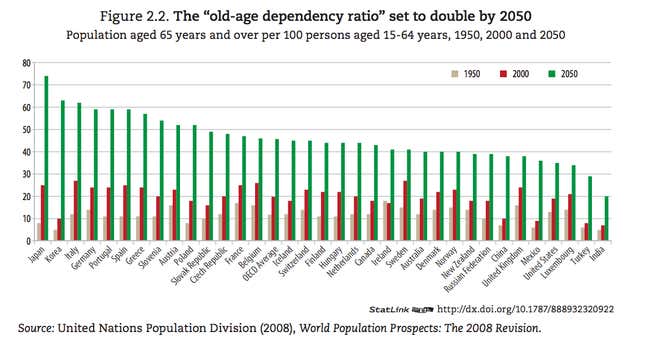By many measures, Korea is doing incredibly well.
Unemployment is ridiculously low.
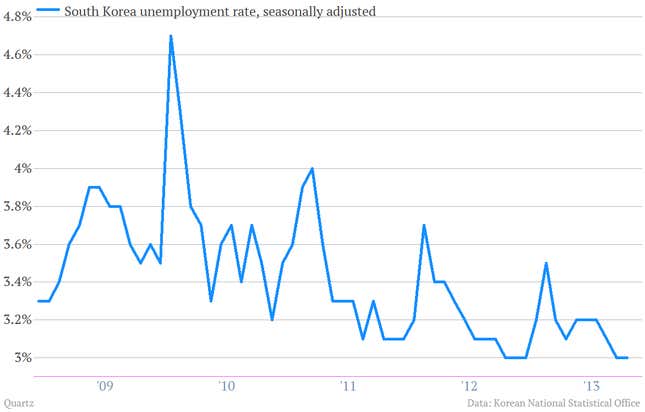
Exports are booming, driving the country’s record current account surplus.
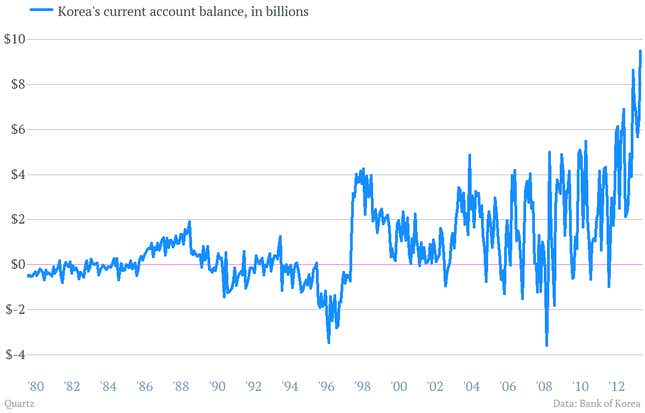
And according to the just released-numbers from OECD, the Paris-based international think tank, South Korean students are some of the best performing in the world. Young South Koreans are especially far above average in math and reading, as measured by the percentage of students reaching the highest level of proficiency in those subjects according to the study of global student achievement known as the PISA.
But there is one measure of education where Korea is at the bottom of the list: happiness.
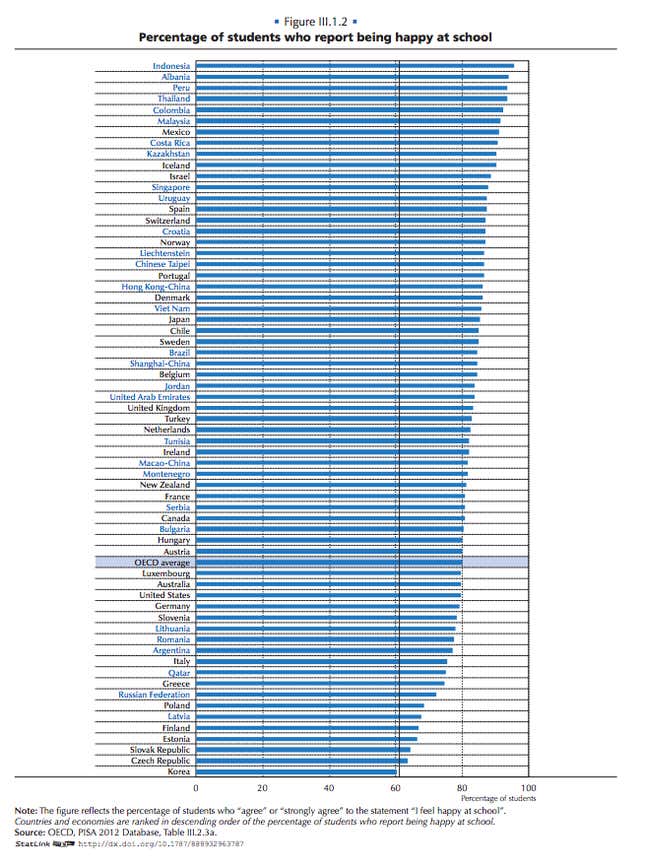
It’s no secret that many Korean students are miserable, especially in high school, as they prepare for the highly competitive College Scholastic Ability Test, which determines entry into college. (The most prestigious are the elite SKY schools: Seoul National, Korea, and Yonsei universities. Attendance at these schools confer large advantages on graduates once they hit the labor market.)
Compounding the stress are expectations from Korean parents, which are some of the highest in the world, according to the OECD.
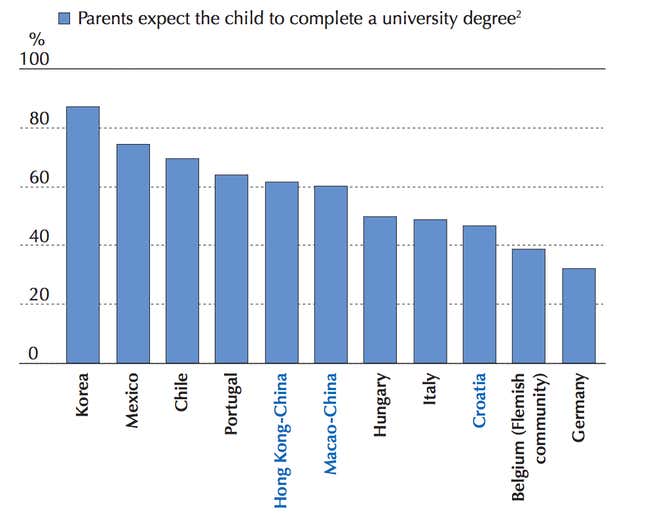
Korea’s intense focus on education has powered nothing short of a economic miracle over the last half century. In 1960, Korea was one of the world’s poorest countries, with a lower per capita GDP than many countries in subsaharan Africa and Latin America. Today’s it’s the 15th largest economy in the world, with a per capita GDP that would put it comfortably in European territory.
But there are signs that Korea might consider shifting course.
For example, while suicide has been on the decline among most developed nations, Korea remains a glaring outlier.
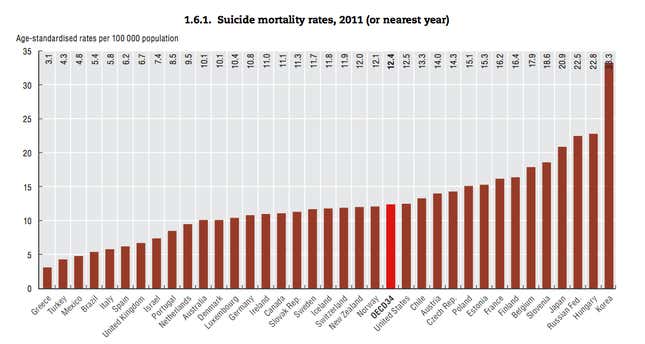
Meanwhile, birth rates have fallen to some of the lowest levels in the developed world, which some attribute partly to the expense and strain of the Korean educational system. Low birth rates have turned Korea into one of the most rapidly aging societies on earth, which could slow economic growth over the coming decades.
